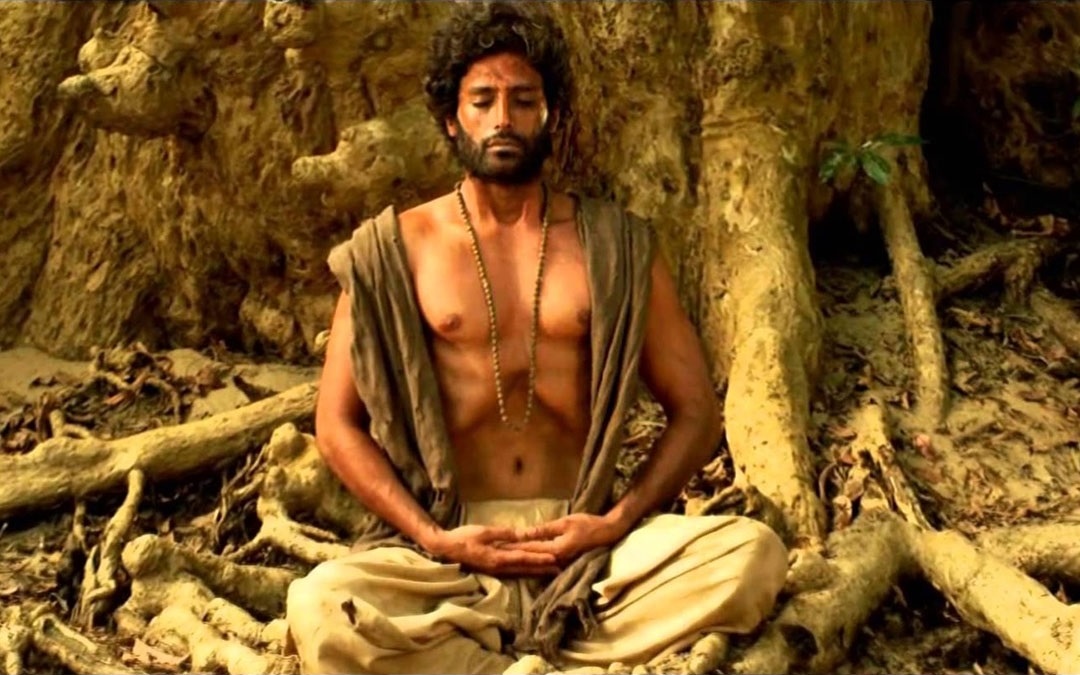Siddhartha Gautama Buddha:
'Historical' Background:
Siddhartha was a prince born in India approx 550 bc. His father had built 3 palaces and the family lived between them for seasonal pleasantness. When he was born his father was told by a sage that he would either become a great king or a great sadhu or monk. Hearing this Siddhartha’s father protected his son from the worldly truths of the outside world and he lived in an isolated world of luxury and tranquillity within the walled grounds of all of the palaces. He married at 16 to his bride also 16 and had a son. At the age of 29 Siddhartha decided to leave his palace to meet his country people. He saw an old man for the first time. His charioteer explained to him that people got old. He decided to make further trips out and saw the diseased and a corpse. {The 3 sights} He also saw an ascetic or monk.
In his 29th year he decided to renounce his palace life and left at night, his horses hoofs muffled for secrecy and went to live as a mendicant {a wondering monk, taken a vow of poverty who begs for food as they wander teaching and serving the poor} Siddhartha did this while he searched for more knowledge. He learned to meditate after studying under 2 yogi’s. Dissatisfied with their answers he wandered off alone and meditated in search for the truths that eluded him to the imbalances in his life and the suffering that he saw. He wanted to end unhappiness and he was unhappy. He near starved himself to death. While bathing in a stream one day he fainted and nearly drowned. He was rescued by a village girl who gave him milk with sugar. After this incident he took a less extreme path and continued his meditation under a pipal tree {now known as a bodhi tree} for 49 days at which point he became enlightened {the pennies dropped} He was 35 years old.
It is important to note here that Buddhism is not so much a religion as a way of life, to achieve ones enlightenment and to live the third or middle way of moderation in all things. Siddhartha never claimed any divinity or communication with divinity. He was just a man {of privileged royal learning} that thought his way to a better philosophy of life for himself and for the people of his day.
His enlightenment took two forms.
1. He concluded, in what is known as the 4 noble truths, that {summary} Life with its cravings and clinging is unsatisfactory. The thirst for craving produces suffering, karma and dissatisfaction. Desire is suffering. End the cravings and clinging. Karma is no longer produced and nirvana is achieved.
{The standpoint of a bachelor, a solo guy who wanted nothing, having had everything and rejected it all and had already been a father. So for everybody else he devised The eightfold path. A disciplined conduct of mind and life style that lead the other sufferers and seekers of enlightenment along the path to end karma and to nirvana.}
2. In order to conclude the above Siddhartha had to view it for himself that is to say, solve his own dichotomy of disharmony. He needed to make sense of the world he saw and how to fit into it. Given his distorted start in life he was uniquely qualified to face the extremes that he had been exposed to and he did choose to face his problem of 'the Siddhartha world’s problem' which he did philanthropically and to heal himself.
And heal himself he did. He realised that his life up until he left the palace and up until then, had been as a result of his father’s {& mothers} up brining. In order to solve his problems he needed to detach himself from his childhood, his parents and his previous perceptions and view himself and all things separately to perceive things from a renewed vantage. - 'My individual identity detached, brings a vital moment of peace.' - Then it was a matter of ratifying his extremes of experience. Coincidently it was his extremes that had lead him to understanding and seeing the wider social problems that had motivated him to crave an end to his own dissatisfaction.
He lived a temperate and moderate life in all things from then on mostly in ashrams set up as a result of the spread of his philosophy. Apparently only losing his temper with undisciplined monks or younger chaps, being younger chaps, who were far from understanding the benefits of avoiding extremes in life. He died a slim man in his early 80’s
His name: Siddhatha means one who has achieved a goal. Gautama roughly translated means teacher. Buddha means enlightened one.
Identify your individual identity, separate and you achieve Buddha. Focus on any further disssharmony you see or disharmony you feel, to seek YouR happiness.
My Strive: Quality of life, My Art, No Need to work, but with occupations, hobbies and some service. The art of self improvement. My perfect average day.. {if only.. https://www.youtube.com/watch?v=xdgjUPMiiEc }

